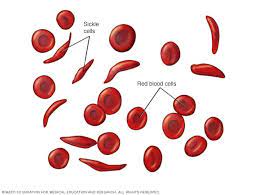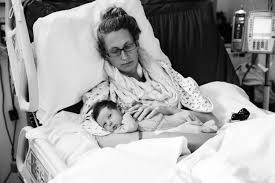
Health advocate decries discrimination, exclusion of Sickle cell patients
Despite breakthroughs in healthcare and increased awareness campaigns, Tawo Onor-Obassi, the founder of the OKares Sickle Cell Foundation, has bemoaned the fact that sickle cell sufferers still experience discrimination and social marginalisation in 2024.
The attorney, well-known for her work in the fight against sickle cell sickness, brought attention to a number of unfavourable cultural attitudes and stereotypes around the genetic condition.
In a statement released on Monday, the leader of "Nguvu Change" pointed out that while the social and mental health components of sickle cell disease (SCD) are often overlooked, they have a significant impact on the general wellbeing and quality of life of those who have the illness.
SCD is a serious hereditary illness that affects most of the African region, according to the World Health Organisation.
According to Onor-Obassi, WHO statistics indicate that between 20 and 30 percent of the world's cases of SCD occur in Nigeria.
According to a study, between 100,000 to 150,000 babies in Nigeria are born with sickle cell disease (SCD) each year, which accounts for 5% of the country's infant death rate and 20% of its newborn mortality rate. This information was shared by the health advocate.
She made the case that myths and misconceptions regarding sickle cell disease (SCD), which are supported by cultural and religious beliefs, exacerbate the social difficulties that people with SCD encounter.
She went on to say that discrimination in healthcare settings and exclusionary behaviours at school are only two examples of how the stigma around SCD presents itself.
The attorney bemoaned how bullying and social exclusion are commonplace for kids with SCD, which lowers their self-esteem and causes them to retreat from social situations.
"SCD ruins everyday life, encourages loneliness, and arouses dread. The fact that there are still a number of myths and misconceptions around SCD in 2024 doesn't help either. For those who have sickle cell disease (SCD), ignorance is a social issue because it perpetuates the myths that the disease is communicable, that people with SCD don't live long lives, and that they are to blame for their health issues. These myths are mostly supported by our religious and/or cultural belief systems.
The prevailing negative image and disposition of this disease in Nigerian society sometimes leads to social marginalisation and discrimination. This stigma may discourage people from getting the help they require, whether from friends, colleagues, or even healthcare professionals.
“Children with SCD are bullied and excluded at school, resulting in low self-esteem and social withdrawal. They experience issues like being teased for the discolouration of their eyes (jaundice), or being excluded from school trips, sporting and social events.
Due to concerns about their health and a desire to avoid coming across as weak or untrustworthy, teenagers and young adults may find it difficult to establish and maintain relationships. Frequent medical needs might also result in financial difficulties, which further strain families and reduce their social opportunities.
"People with SCD still face stigmatisation from healthcare providers who believe they are drug seekers, even at our healthcare facilities during emergencies," she said.
In order to give sickle cell sufferers full care, Onor-Obassi advocated for extensive support networks and heightened public awareness campaigns.
She insisted that basic care regimens for sickle cell patients should include regular mental health assessments.
In order to give comprehensive care, the health advocate emphasised the significance of forming multidisciplinary integrated teams with psychiatrists, psychologists, mental health specialists, and haematologists.
She went on, "Medical management of sickle cell disease (SCD) can involve routine medication prescriptions, frequent hospital visits, and maintaining hydration." However, it's crucial to treat the condition's psychosocial and mental health components as well.
"Improving the patient-provider relationship will be achieved through training healthcare professionals to comprehend the psychosocial aspects of SCD."
"National campaigns and educational programmes, among other advocacy initiatives, are crucial for dispelling misconceptions about SCD and reducing stigma."
The health advocate demanded well-informed laws and sufficient financing for SCD community assistance, treatment, and research initiatives.
"To sum up, having sickle cell disease (SCD) affects not only one's physical health but also one's mental and social well-being. Therefore, receiving comprehensive medical, psychological, and social support is essential to enhancing one's quality of life and promoting an inclusive and supportive environment for those with SCD," the speaker said.





